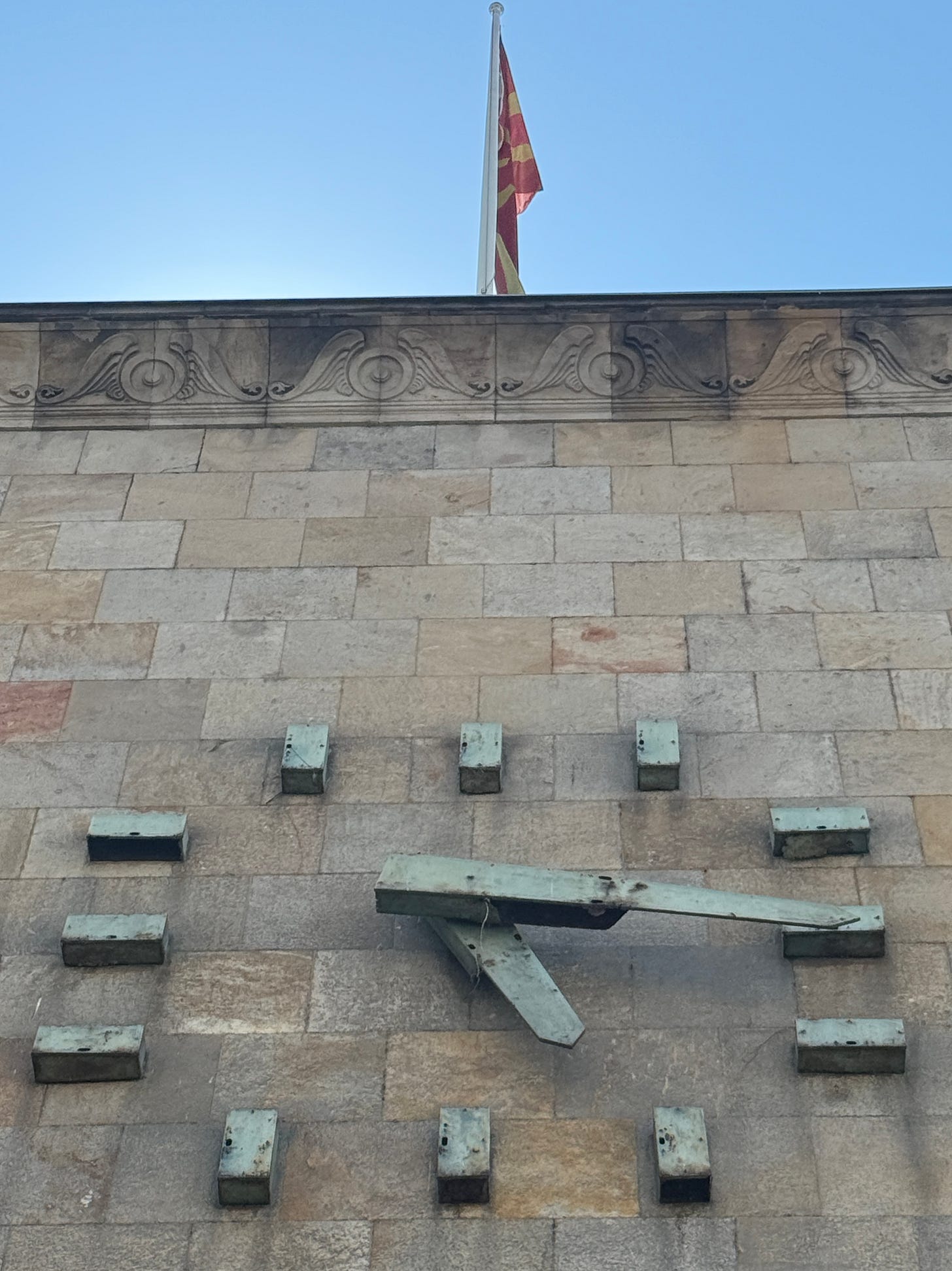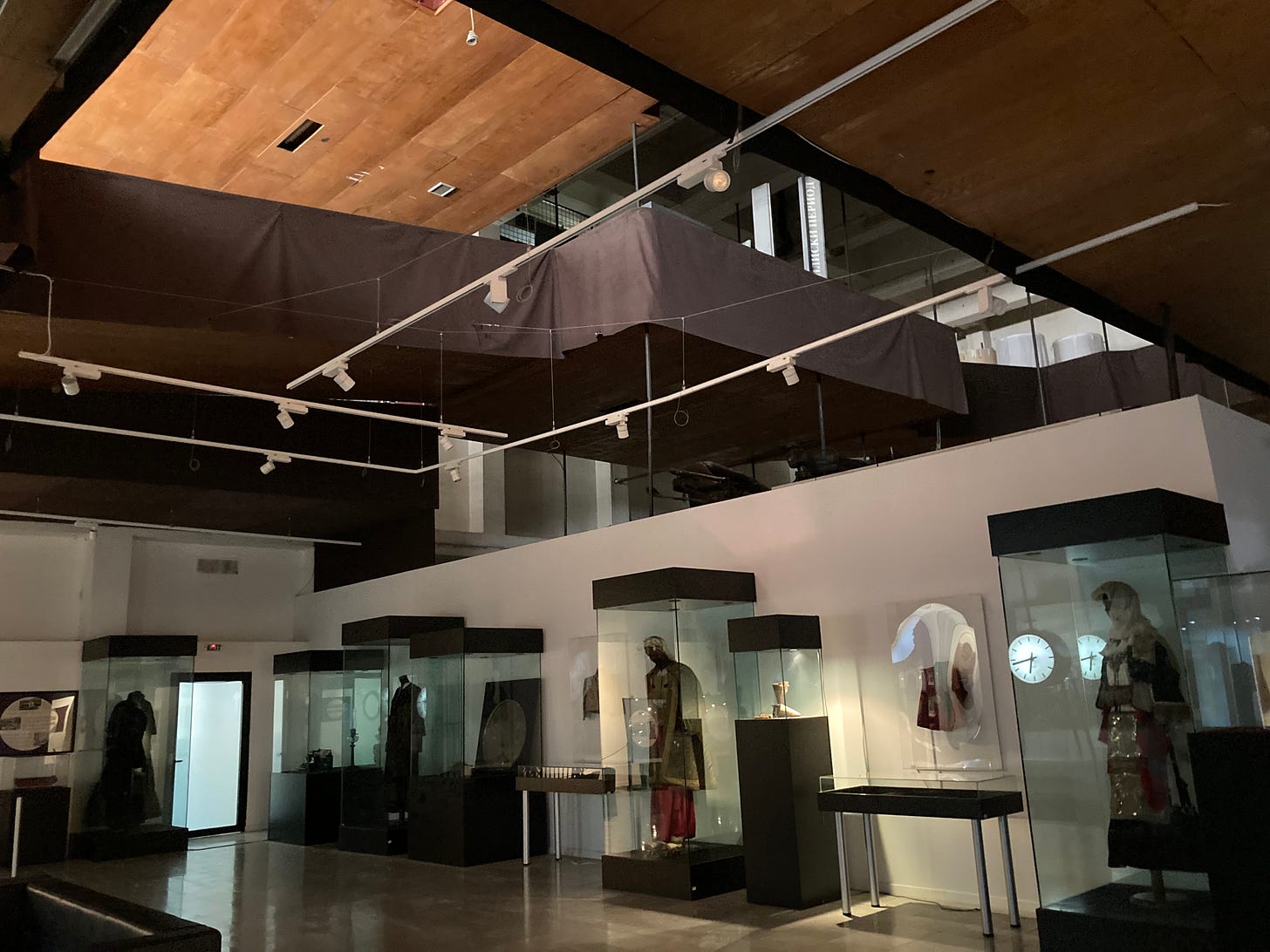You'd better know your past
#384

Friend of Democracy,
Those who don't remember history cannot learn lessons for the future.
On 26 July 1963, at 5:17 a.m., one of the most horrible disasters in the history of North Macedonia (then part of Yugoslavia) struck Skopje.
An earthquake with a magnitude of 6.1 on the Richter scale damaged or destroyed 80 per cent of the buildings, killing over 1,000 people, injuring more than 3,000, and leaving around 200,000 homeless.
The clock at the capital's former train station (see photo above) has commemorated the earthquake ever since. Two-thirds of the station collapsed, but the part with the clock remained standing, and the clock still shows the time when the power went out due to the earthquake.
So the clock became a memorial. And like every good memorial, it helps us to draw conclusions. Make life better in the future then it was in the past. In case of the clock, it calls for the construction of earthquake-proof buildings.
There's less reminder inside the building.
In 1970, the local history museum moved into the remaining part of the train station. Anyone who visits it today (admission is free) enters a museum within a museum. The exhibition hasn't been updated in 35 years (see photo above). The end of socialism, the attainment of democracy, and the consequences for the city of founding the state of North Macedonia are all sought in vain. One walks through the museum and wonders if someone forgot to lock the doors in 1990.
Walking through the windowless exhibition, I the felt trapped in space and time. More important, I asked myself, how can democracy succeed if one doesn't understand how and why socialism and autocracy fail?
I left the museum chastened.
Outside, I was greeted by the sun, the traffic, people in cafes and shopping. The vibrant life of Skopje. I cheered up. And I thought that perhaps real life provides the best arguments for democracy.
See you in Democracy,
Johannes Eber


